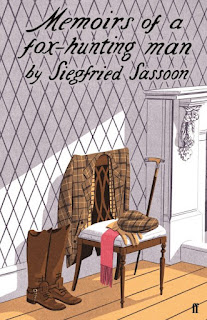One Man's Achievement
Eugene Henderson is a man who likes to possess things. Already an American multi-millionaire, his sentiment exhausts him daily. An insatiable voice pesters his mind, and at fifty-five, he is at the point of lowering himself to its demands. In other words, he is unhappy.
‘But there comes a day,’ he says; ‘there always comes a day of tears
and madness. Now I have already mentioned that there was a disturbance in my
heart, a voice that spoke there and said, I want, I want, I want!’ (p.
24). America, he argues, is too big -- a place with too much suffering. People everywhere
are experiencing the same problem. He decides to flee, hoping to cure this
incessant need; he takes a trip to Africa.
Henderson the Rain King, Saul Bellow’s fourth novel, assesses one man’s response to a metaphysical crisis. Henderson wants to make his soul sleep. Otherwise, he risks losing his life.
Attempting to address his spiritual woes, Henderson journeys into a rural section of mid-Africa. ‘My spirit was not sleeping then, I can tell you,’ he confesses, fearing he condemnation 'to die a mere old rioter or dumb-sock with three million dollars, a slave to low-grade fear and turbulence’ (p. 88). Hyper aware of his material impulses, Henderson aims to escape the ideological confines of a capitalist’s way of life. America as land of opportunity has its downfalls, promoting a toxic view of human existence, demanding its citizens to place money before livelihood. Henderson's spirit reaches for something beyond. If he wants to grasp a sense of everlasting fulfillment, he must act upon an impulse.
He eventually finds a teacher. He has a strange encounter with a tribal king. He befriends a small African community, displaying his eagerness to interact. He arrives as someone who views existence as ‘odious’, a person unwilling to live an empty life back in the US. He presents himself before the king, who mistakes Henderson for a foreign diplomat. He soon explains his case, and the king kindly listens. With the power of wisdom, the king states his judgement. ‘You do not show too much wear and tear of the journey,’ he says, examining Henderson’s figure. ‘I esteem you to be very strong. [. . .] But I will not conceal you are a specimen of development I cannot claim ever to have seen’ (p. 138). This phrase (‘specimen of development’) is key to the story of Henderson’s rise from a lifelong ennui. Bellow is pointing towards a moral, that Henderson is undergoing a steady process to transcend himself.
Henderson overcomes selfishness. He realises a love for higher causes, including his own sense of personal destiny. At one point, the tribe’s king introduces Henderson to his pet lion and challenges him to act and imitate the lion’s ways – literally, to place himself in its paws. His experience, humorous at first, is soul-shattering. It teaches him to believe in his sanctity as a living, breathing human being – just like the lion, a creature celebrated for simply existing, being alive.
Beforehand, Henderson states his diagnosis to the king, trying to figure out his own place in the world: ‘You are a Be-er,’ he says. ‘I’ve just got to stop Becoming. Jesus Christ, when am I going to Be?’ (p. 162). The lesson is as simple and as complex as Shakespeare's famous dictum. After living the lion, Henderson chooses to be.
When it finally arrives, Henderson’s transformation is a quasi-religious experience. ‘I was anointed with sweat,’ he says, his body burning among his soul’s flames. ‘[I experienced] that real depth. I mean that depth where I have always belonged’ (p. 164). According to Bellow, the lead is to renounce a ‘former attitude of fixity’ – i.e., to treat life as stone-like, deathly, and cold – and instead promote an attitude of perennial personal growth.
This novel’s fable-esque narrative pushes Henderson away from the original pain-laden inner-voice, preaching ‘I want, I want, I want!’. The triple millionaire converts his life-attitude into another human longing: the assertion of being itself, changing into something akin to Sylvia Plath’s words: ‘I am, I am, I am’.
 |
| Saul Bellow (1915-2005) |


Comments
Post a Comment